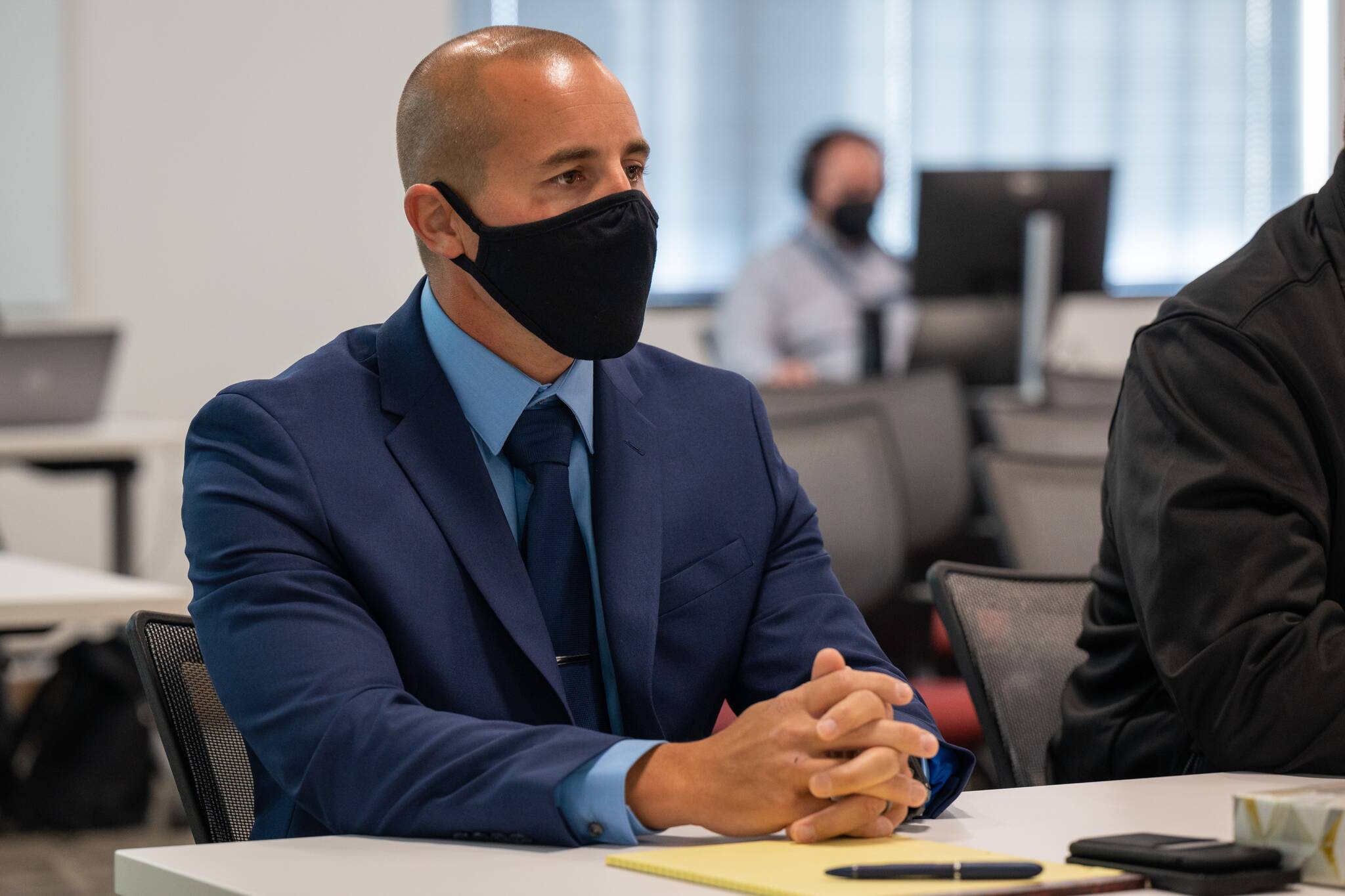A jury unanimously found Federal Way Police were justified in the 2017 fatal shooting of Robert Lightfeather.
The decision was made on Sept. 30 following a four-day King County inquest hearing. The eight-person jury determined Federal Way officers Austin Rogers and Tyler Turpin fired their weapons in self-defense and in defense of the public when Lightfeather, 33, pointed a gun at another man and then toward officers at the Pink Elephant Car Wash on Pacific Highway South in Federal Way in October 2017.
Jurors found Rogers was justified in firing 14 times at Lightfeather, but jurors could not conclude if Turpin’s gunshots struck Lightfeather. Because of this, it was not applicable for the jury to decide if Turpin’s actions were justified; however, the jury unanimously agreed Rogers’ actions were necessary and justified.
The jury was made up of seven men and one woman. Jurors agreed the officers’ actions were also in compliance with the City of Federal Way’s use of force and de-escalation policies and trainings.
Attorney Thomas Miller, who represented the officers and the City of Federal Way, said they are pleased that the inquest jury recognized the officers “reacted appropriately to the imminent deadly threat posed by Mr. Lightfeather that night.”
“In response to the 911 call reporting a man pointing a gun at another man, the officers did what the public expects police to do — they went to the scene and put themselves in harm’s way to intervene and protect the public,” Miller said in an email to the Mirror. “When Mr. Lightfeather pointed his gun at the officers and attempted to fire it, they acted in accordance with their training to protect themselves and others at the scene.”
Lightfeather’s family, represented by attorney Teri Rogers Kemp, did not attend the hearing. The Mirror has reached out to Kemp for comment. Lightfeather’s obituary said he was the father of two daughters, and was known as a loving, caring and humorous husband and friend.
Witnesses at the hearing recounted that earlier in the night on Oct. 30, 2017, Lightfeather pulled into the car wash and began interacting with two men whose car was smoking. After about 20 minutes, Lightfeather pulled out a gun. Witnesses called police and, because they were patrolling in the area, officers Turpin and Rogers responded to the car wash.
When testifying, Turpin said he had a civilian in the passenger seat on a ride along. When he arrived on the scene, he said Lightfeather pointed a gun at him as Turpin exited his police vehicle. Turpin could not recall if he gave Lightfeather a warning to drop his gun.
When Rogers arrived, he saw Turpin getting out of his police car. Rogers said Lightfeather pointed his gun toward Turpin’s police vehicle, then toward Rogers, adding that he remembers thinking Lightfeather was going to shoot him.
“I was shocked,” Rogers said when testifying on Sept. 29. “As a police officer, you go to calls and 99.9 percent of the calls that you go to happen the way you expect them to and this is that ‘.1 percent’ of calls you’re like, ‘wow, I did not think that was going to happen to me.’”
Rogers said he then exited his police vehicle, staying close to his driver’s side door and pulling out his gun, which is when Lightfeather pointed his gun in Rogers’ direction and racked the slide before pointing the gun back in his direction, according to police.
Rogers confirmed in testimony that he did not offer any verbal commands to Lightfeather.
“There was no time to pause, I shot immediately. … It was the only option,” Rogers said of his use of deadly force.
Five members of the jury agreed it was feasible for Turpin to provide a verbal warning prior to shooting, and all jurors agreed it was not feasible for Rogers.
The jury found each officer had reason to believe Lightfeather was acting in a manner that presented imminent risk of death or injury to the officers or other members of the public.
After he was shot, Lightfeather crouched and fell face-forward to the ground. Rogers said Lightfeather’s gun was still pointed at the officers.
A toxicology report showed Lightfeather’s blood alcohol level was about 0.24, which is three times the legal limit, according to Dr. Timothy Williams, pathologist of the King County Medical Examiner’s Office during testimony.
Rogers, who is still employed with the Federal Way Police Department, joined Federal Way in October 2016 after previously serving with the Honolulu Police Department. Turpin transferred to the Federal Way force in December 2016 after previously working with the University of Washington Police. Turpin no longer works as a police officer.
About the hearing inquest process
Jurors examined witness testimonies and evidence detailing the moments before and after the fatal shooting as part of the county’s inquest hearing process, which sheds light on the facts and circumstances surrounding a death at the hands of law enforcement.
At the conclusion of the proceedings, an inquest jury answers a series of questions called interrogatories as directed by the inquest administrator.
Hearing inquests had been delayed more than four years by lawsuits after King County Executive Dow Constantine in 2018 paused inquests to address concerns of fairness and transparency and pushed forward with a new process built on stakeholder and community input.
When local jurisdictions, including the city of Federal Way, challenged the new process in court, the new program was delayed until the Washington Supreme Court reaffirmed the executive’s order in July 2021. With the legal challenges concluded, King County is set to resume the inquests to provide clarity, accountability and closure to the public and to the families of those killed by law enforcement.
Talk to us
Please share your story tips by emailing editor@kentreporter.com.
To share your opinion for publication, submit a letter through our website https://www.kentreporter.com/submit-letter/. Include your name, address and daytime phone number. (We’ll only publish your name and hometown.) Please keep letters to 300 words or less.

